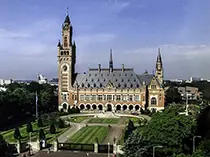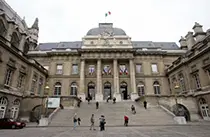Introduction
Stockholm University (Swedish: Stockholms universitet) is a public university in Stockholm, Sweden, founded as a college in 1878, with university status since 1960. With over 33,000 students at four different faculties: law, humanities, social sciences, and natural sciences, it is one of the largest universities in Scandinavia. The institution is regarded as one of the top 100 universities in the world by the Academic Ranking of World Universities (ARWU).
Stockholm University was granted university status in 1960, making it the fourth oldest Swedish university. As with other public universities in Sweden, Stockholm University’s mission includes teaching and research anchored in society at large.
The initiative for the formation of Stockholm University was taken by the Stockholm City Council. The process was completed after a decision in December 1865 regarding the establishment of a fund and a committee to “establish a higher education institution in the capital”. The nine members of the Committee were respected and prominent citizens whose work had helped the evolution of science and society.
Campus
The main part of Stockholm University is in the Frescati area, which extends from the Bergius Botanical Garden in the north to Sveaplan in the south. It is located in the world’s first national urban park and the area is characterized by nature, architecture and modern art, featuring such notable buildings as the Aula Magna (auditorium). Within Frescati, the areas Albano, the Bergius Botanical Garden, Frescati Backe, Frescati Hage, Kräftriket, Lilla Frescati and Sveaplan are located. The names of many of these areas have a history dating back to the late 1700s. After Gustav III’s trip to Italy in 1783–84, several places at Brunnsviken were given Italian names. Stockholm University has another campus in Kista, which houses the Department of computer and systems sciences.
Programs
Stockholm University offers courses at both undergraduate and advanced level. There are 190 study programmes in total, including 75 master’s programmes taught in English, and 1,700 courses to choose from within human science and science. Students can choose between studying one or more free-standing courses, that each may last between five weeks and one semester, or apply for a full study programme.
- Introduction to Business Studies, 30 ECTS credits
- Global Business Studies, Course Module, 30 ECTS credits
- Business Administration III, Course Module, 30 ECTS credits
Programmes in Swedish
- Business Administration
- Business Administration and IT
- Market Communication (GI)
- Market Communication and IT
- International Master’s Program in Curating, including Art, Management and Law, 120 credits
- Study Programme in Social Work, 210 credits
- Bachelor’s Programme in Biology, 180 cr
- Equality Law
- Human Rights in a Global Perspective
- Legal English
- Maritime and Transportation Law
- Comparative Law
- EU Competition Law
- EU Banking and Financial Integration Law
- The Internal Market – Digital and Social Challenges
- International Criminal Law
- Family Law Across Borders
- EU Internal Market Law
- Human Rights in a Global Perspective
- Legal Systems and Methods
- Swedish Law in Context
- Law and Economics 1 and 2
- American and English Business Law
- Cyber Law
- The Global Labour Market and International Labour Law
- EU External Trade Relations Law and Policy
- International Commercial Dispute Resolution
- International Law and the Global Economy
Campus life
Stockholm is the capital of Sweden and one of the most prominent academic centres in northern Europe. The city is made up of several islands and is surrounded by water. The water is so clean that you can actually swim in the middle of the city. In the summer the the sun never fully sets and people gather in open bars, restaurants and parks to enjoy the light and the temperate climate. In the wintertime it is often possible to ice skate in the middle of the city.
Stockholm offers higher education of the highest international standard at well renowned universities and university colleges, including prominent institutions such as Karolinska Institutet, KTH Royal Institute of Technology, Stockholm School of Economics, and Stockholm University.
Over the years, no less than twelve Nobel Prize Laureates have been active at these universities and university colleges, within the fields of physiology and medicine, physics, economics, and chemistry.
Residence Permit for Studies
Citizens of the EU/EEA have a right of residence and does not need a residence permit to study in Sweden. Citizens of countries outside the EU/EEA must apply for a residence permit to study in Sweden. As the application process can take several months, applicants are encouraged to apply in good time and make sure the application is complete. Residence permits are issued by the Migration Agency (Migrationsverket) and the university cannot help you with this process. When issuing a study related residence permit for admitted students from a non-EU/EEA country, the Migration Agency requires confirmation that you have paid the tuition fees for the first semester and can show that you have sufficient funds to cover living costs for the whole study period, which currently amount to at least SEK 8,010 per month.
Accommodation
Students are responsible for finding their own accommodation and should do so prior to arrival. Only students who receive a scholarship offered by Stockholm University will be provided with housing through our Housing Office. Please note that finding accommodation in Stockholm can take time and we recommend all students to start looking for housing as early as possible. A good starting point is the university website.
























